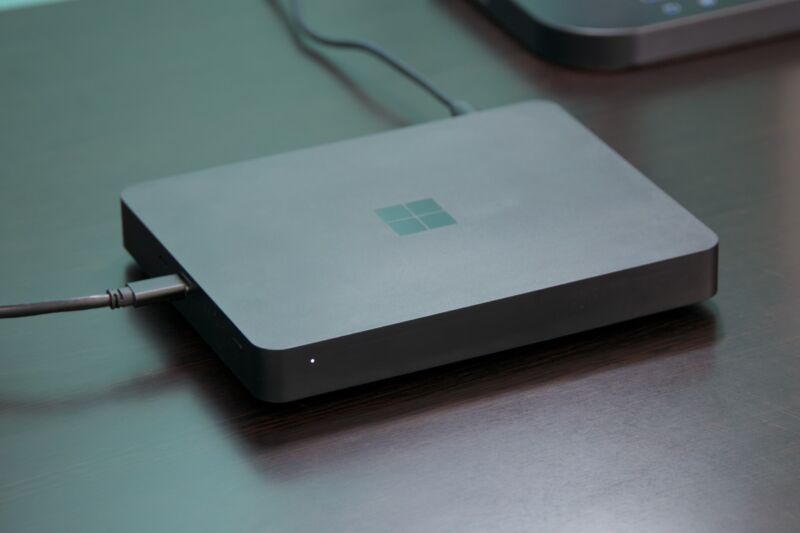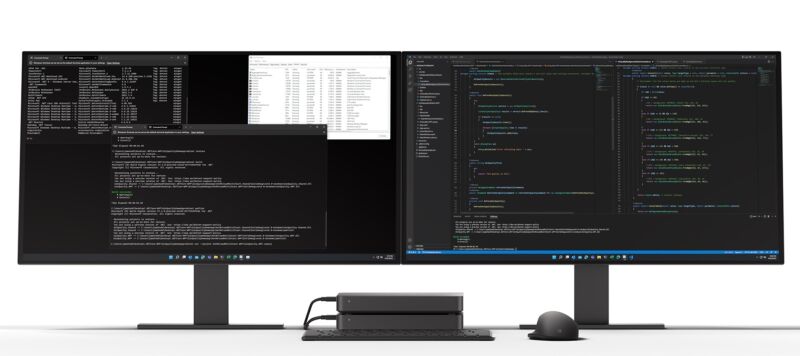-
 chevron_right
chevron_right
“Project Volterra” review: Microsoft’s $600 Arm PC that almost doesn’t suck
news.movim.eu / ArsTechnica · Tuesday, 15 November, 2022 - 12:00 · 1 minute

Enlarge / Microsoft's Windows Dev Kit 2023 is meant to get the Arm version of Windows into the hands of more developers. (credit: Andrew Cunningham)
Microsoft has released two new systems based on Qualcomm's Arm processors lately. The first, a 5G version of the Surface Pro 9 , has mostly been panned by reviewers, with software compatibility being a major pain point even after two generations of the Arm-powered Surface Pro X. The second is the $600 Windows Dev Kit 2023 , formerly known by the much cooler name "Project Volterra," and it's supposed to help solve that software problem.
Microsoft has tried doing Arm Windows developer boxes before—namely, the $219 ECS LIVA QC710 it began selling about a year ago (it's no longer for sale, at least not through Microsoft's store). But with its 4GB of memory, 64GB of pokey storage, and underpowered Snapdragon 7c processor, using it was like revisiting the bad netbook days. Maybe you could get some basic browsing done on it. But actual work, even for someone like me who primarily works with text and medium-resolution photos all day? Nope.
The Dev Kit 2023 is nearly three times as expensive, but the hardware is powerful enough that it mostly just feels like a typical midrange mini-desktop in day-to-day use. Freed from the limitations of cruddy hardware, the machine makes it much easier to evaluate Windows-on-Arm's remaining software limitations. For this review, we won't be using it as a developer box, but it does give us a good chance to evaluate where the Windows-on-Arm project is right now, both in hardware and software—especially relative to the Mac, the other hardware and software ecosystem that is making a much cleaner, wider-ranging, and more graceful transition from x86 software to Arm.

